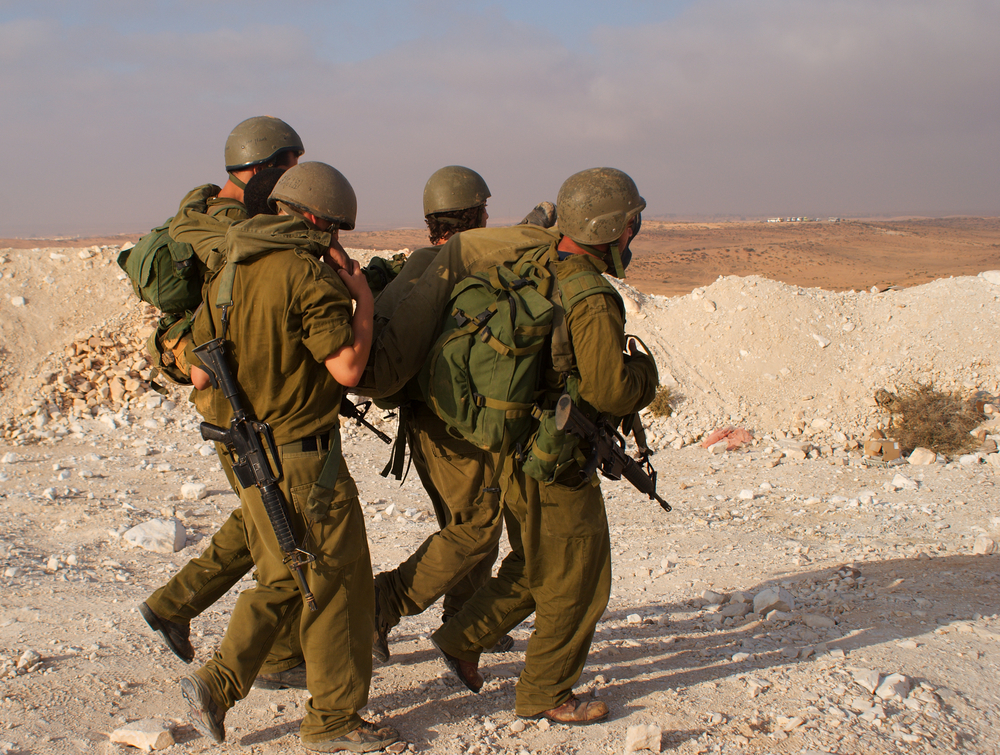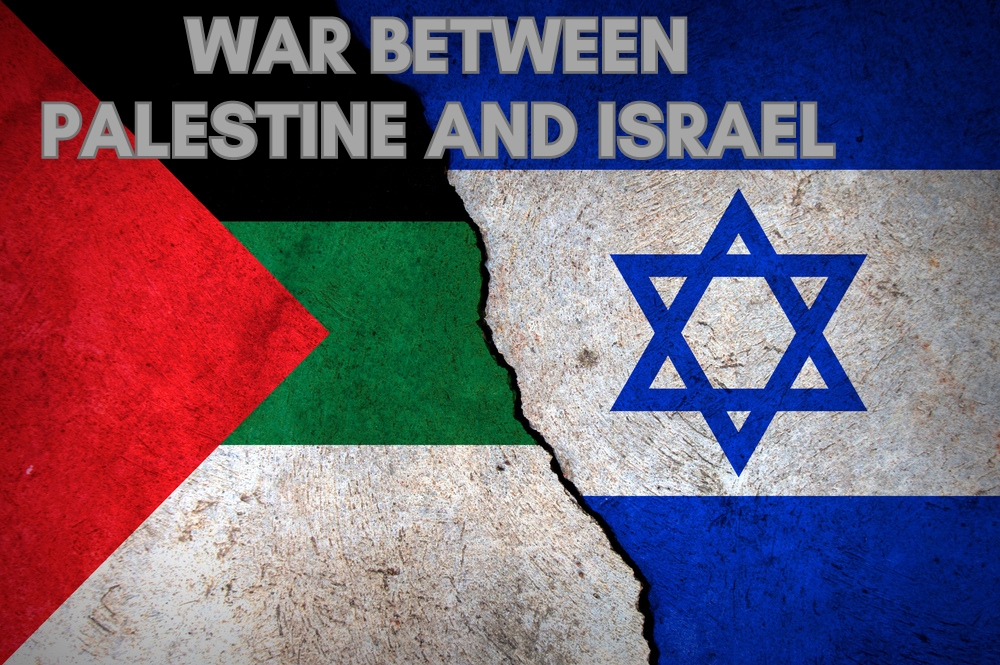The ongoing conflict between Gaza and Israel has been a source of political unrest and conflict escalation for decades. The region has been plagued by violence, with both sides engaging in military operations and attacks, resulting in the loss of countless lives and destruction of infrastructure. The situation has only worsened in recent years, with tensions reaching a boiling point and the possibility of an all-out war looming. In this article, we will delve into the root causes of the Gaza and Israel war, the current state of affairs, and the potential consequences of a full-scale war in 2023.

The Historical Context of the Gaza and Israel WAR Conflict.
The Early Beginnings.
To understand the current state of the Gaza and Israel conflict, we must first look at its historical context. The conflict can be traced back to the late 19th century when Zionist Jews began immigrating to Palestine, then under Ottoman rule. The influx of Jewish immigrants, coupled with the rise of Zionism, led to tensions with the Arab population, who saw the influx as a threat to their land and way of life.
The Zionist movement, which advocated for the establishment of a Jewish state in Palestine, gained momentum in the early 20th century. This led to increased Jewish immigration to the region, further exacerbating tensions with the Arab population. The British Mandate for Palestine, established after World War I, further complicated the situation by promising to establish a “national home for the Jewish people” in Palestine, while also recognizing the civil and religious rights of the existing non-Jewish communities.
The Establishment of Israel and the Arab-Israeli War.
In 1948, the state of Israel was established, and the Arab-Israeli War broke out, resulting in the displacement of hundreds of thousands of Palestinians. The Gaza Strip, a small territory on the Mediterranean coast, came under Egyptian control, while the West Bank was annexed by Jordan. The Palestinian refugees who fled their homes during the war were left in limbo, with no place to call their own.
The establishment of Israel was met with resistance from the Arab states, who refused to recognize the new state. The Arab-Israeli War, also known as the War of Independence in Israel, resulted in a significant shift in the demographic and political landscape of the region. The war ended with armistice agreements between Israel and its neighboring Arab states, but the issue of Palestinian refugees remained unresolved.
The Six-Day War and the Israeli Occupation.
In 1967, the Six-Day War between Israel and its Arab neighbors resulted in Israel gaining control of the Gaza Strip and the West Bank. This marked the beginning of the Israeli occupation of Palestinian territories, which has been a major source of conflict and political unrest in the region.
The Six-Day War was a pivotal moment in the history of the Gaza and Israel war. The war resulted in a significant territorial expansion for Israel, but it also marked the beginning of a prolonged period of occupation and conflict. The Israeli occupation of the Gaza Strip and the West Bank has been a contentious issue, with Palestinians demanding an end to the occupation and the establishment of an independent Palestinian state.
The Current State of Affairs.
The Ongoing Conflict.
The Gaza and Israel conflict has been ongoing for over seven decades, with no end in sight. The situation has only worsened in recent years, with the rise of extremist groups and the failure of peace talks. The Gaza Strip, home to over two million Palestinians, has been under an Israeli blockade since 2007, severely limiting the movement of people and goods in and out of the territory.
The ongoing conflict has had a devastating impact on the lives of the people in Gaza. The Israeli blockade has led to a severe humanitarian crisis, with shortages of food, medicine, and other essential goods. The blockade has also crippled the economy, leading to high unemployment rates and widespread poverty.
The Living Conditions in Gaza.
The blockade, coupled with the Israeli occupation and frequent military operations, has led to dire living conditions in Gaza. The unemployment rate is over 50%, and access to basic necessities such as clean water and electricity is limited. The constant threat of violence and the lack of economic opportunities have resulted in a sense of hopelessness and desperation among the population.
The living conditions in Gaza are among the worst in the world. The majority of the population is dependent on humanitarian aid for survival, and the health care system is on the brink of collapse. The ongoing conflict and blockade have also had a profound impact on the mental health of the population, with high rates of depression, anxiety, and post-traumatic stress disorder.
The Security Threats Faced by Israel.
On the other side, Israel has faced numerous security threats, including rocket attacks from Gaza and terrorist attacks from extremist groups. The Israeli government argues that the blockade and occupation are necessary for their security and to prevent the smuggling of weapons into Gaza. However, these measures have only fueled resentment and anger among the Palestinian population, leading to further conflict escalation.
The security situation in Israel is complex and multifaceted. While the Israeli government has a responsibility to protect its citizens from security threats, the measures it has taken have been criticized for being disproportionate and for violating the rights of the Palestinian population. The ongoing conflict has also had a significant impact on the Israeli population, with many living in fear of rocket attacks and other forms of violence.
The Role of External Actors
After this Conflict some Major countires take initiative to supporting thier favourite countries. By involving in the battle
The Involvement of Iran.
The Gaza and Israel conflict is not limited to the two parties involved. External actors, such as neighboring countries and international organizations, have played a significant role in the conflict’s escalation. For instance, Iran has been a major supporter of Hamas, the militant group that controls Gaza, providing them with weapons and financial aid. This support has enabled Hamas to continue its attacks on Israel, further fueling the conflict.
Iran’s involvement in the Gaza and Israel conflict is part of a broader regional power struggle. Iran has been a vocal critic of Israel and has provided support to various militant groups in the region. This has led to increased tensions between Iran and Israel, with both sides accusing each other of destabilizing the region.
The Role of the United States.
The United States, a close ally of Israel, has also been involved in the conflict, providing military aid and support to the Israeli government. This has been a source of controversy, with critics arguing that the US’s unwavering support for Israel has hindered any progress towards peace in the region.
The US’s role in the Gaza and Israel conflict is complex and multifaceted. While the US has a long history of supporting Israel, it has also been involved in efforts to mediate peace talks between Israel and the Palestinians. However, these efforts have often been criticized for being biased in favor of Israel and for failing to address the root causes of the conflict.
The Potential Consequences of a Full-Scale War in 2023.
The Dire Situation in Gaza.
The Gaza and Israel conflict has been characterized by periods of relative calm, followed by sudden escalations of violence. However, the possibility of a full-scale war in 2023 cannot be ignored. The situation in Gaza is dire, with the population living in poverty and under constant threat of violence. The Israeli government has also shown no signs of easing the blockade or ending the occupation, leading to a sense of hopelessness among the Palestinian population.
A full-scale war in 2023 would have devastating consequences for the people of Gaza. The already dire humanitarian situation would likely worsen, with increased violence leading to more deaths and injuries, and further destruction of infrastructure. The psychological impact of a full-scale war would also be profound, with the population already suffering from high levels of trauma and stress.
The Impact on Israel.
A full-scale war would also have serious consequences for Israel. While Israel has a sophisticated military and defense system, a full-scale war would likely result in civilian casualties and damage to infrastructure. Furthermore, a war could potentially lead to increased international isolation and criticism for Israel.
The potential for a full-scale war also raises concerns about the impact on the Israeli population. The threat of rocket attacks and other forms of violence would likely increase, leading to fear and anxiety among the population. A war could also have economic consequences for Israel, with potential impacts on tourism, trade, and investment.
The Regional Implications.
The conflict would also have far-reaching implications for the entire Middle East, potentially destabilizing the region and leading to further political unrest. The Gaza and Israel conflict is deeply intertwined with broader regional dynamics, and a full-scale war could potentially draw in other actors and exacerbate existing tensions.
The potential for a full-scale war in 2023 is a cause for concern not only for Gaza and Israel, but for the entire region. The Middle East is already a volatile region, with ongoing conflicts in Syria, Yemen, and other countries. A full-scale war between Gaza and Israel could further destabilize the region and have far-reaching geopolitical implications.
The Need for a Resolution!
The Urgency of Peace Talks
The Gaza and Israel conflict has been ongoing for far too long, with no end in sight. The current state of affairs is unsustainable, and the potential consequences of a full-scale war are dire. It is crucial for both sides to come to the negotiating table and find a peaceful resolution to the conflict.
The failure of previous peace talks underscores the challenges of resolving the Gaza and Israel conflict. However, the urgency of the situation requires renewed efforts to find a peaceful solution. Both sides need to make difficult compromises and work towards a two-state solution that respects the rights and aspirations of both the Israeli and Palestinian people.
The Role of the International Community
The international community also has a role to play in facilitating peace talks and providing aid to the people of Gaza. The United Nations and other organizations must work towards finding a lasting solution to the conflict and addressing the root causes of the political unrest and conflict escalation.
The international community has a responsibility to help alleviate the humanitarian crisis in Gaza and to support efforts towards a peaceful resolution of the conflict. This includes providing humanitarian aid, supporting economic development in Gaza, and advocating for the rights of the Palestinian people. The international community must also hold all parties accountable for violations of international law and human rights abuses.
Conclusion
In conclusion, the Gaza and Israel conflict is a complex issue with deep historical roots. The ongoing political unrest and conflict escalation have had devastating consequences for both sides, and the potential for a full-scale war in 2023 is a cause for concern. It is essential for all parties involved to work towards finding a peaceful resolution to the conflict and addressing the underlying issues that have fueled it. Only then can there be hope for a better future for the people of Gaza and Israel.


